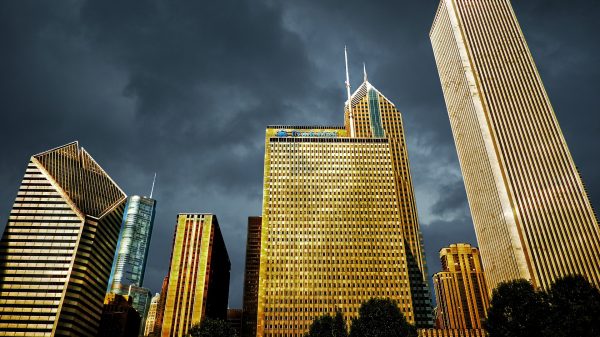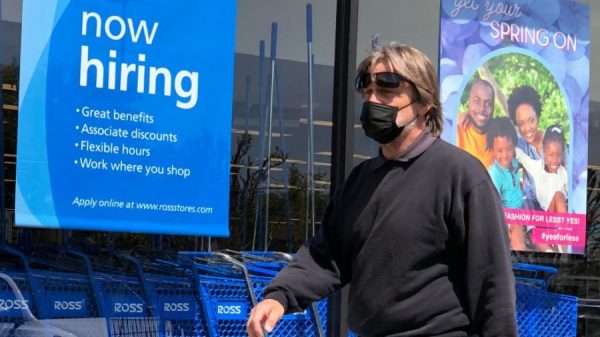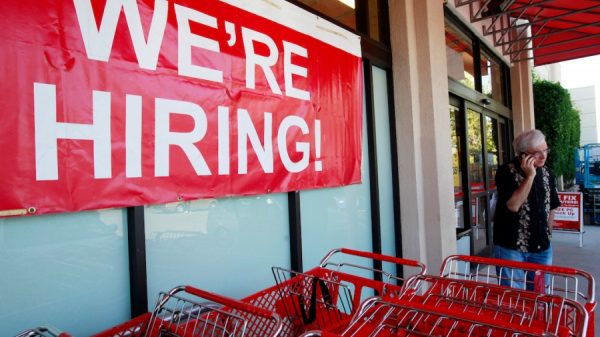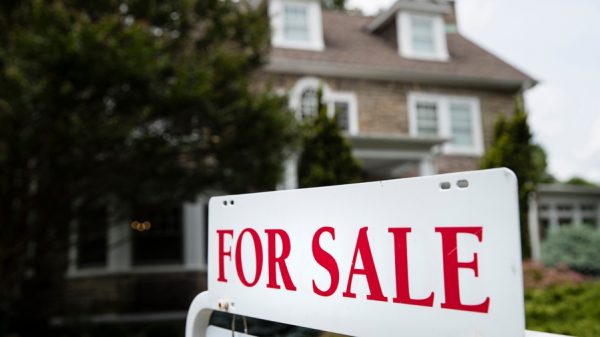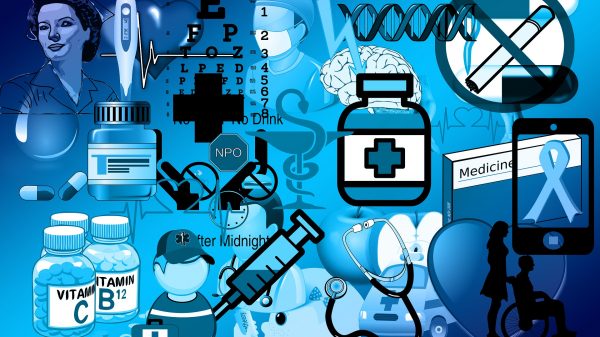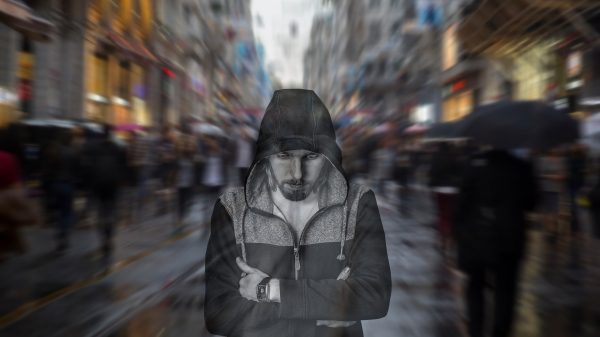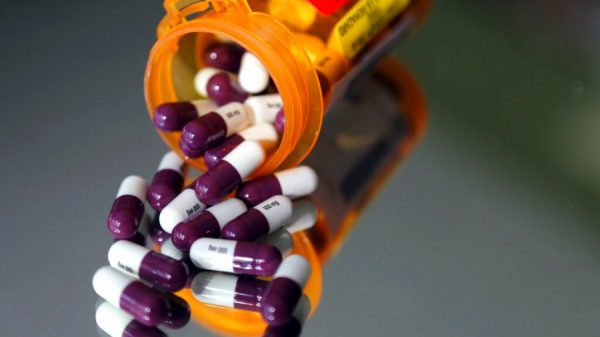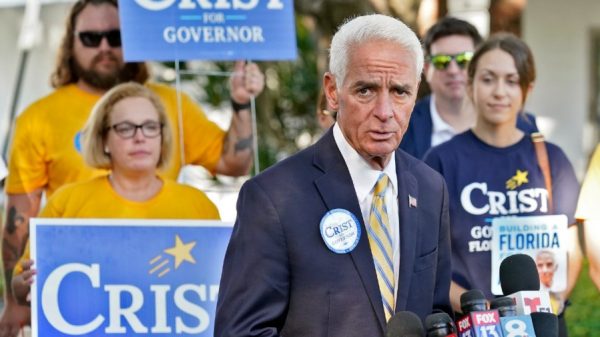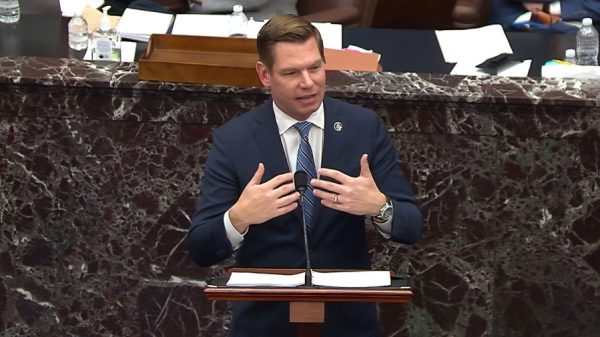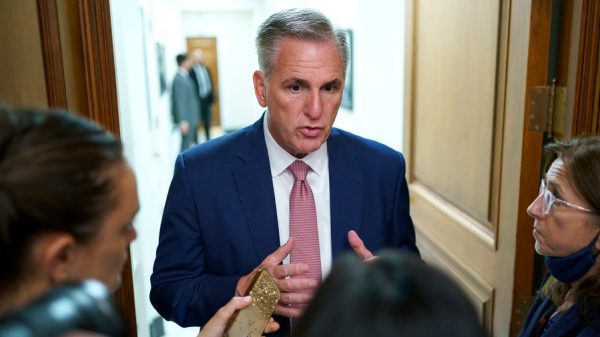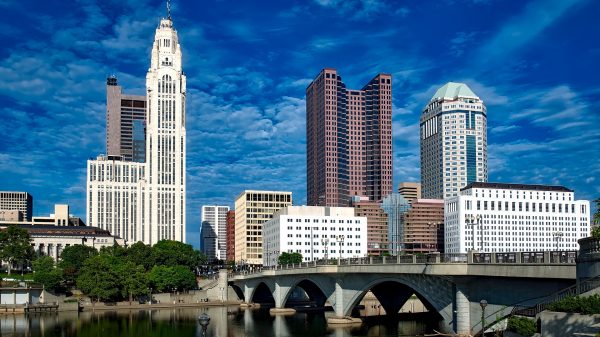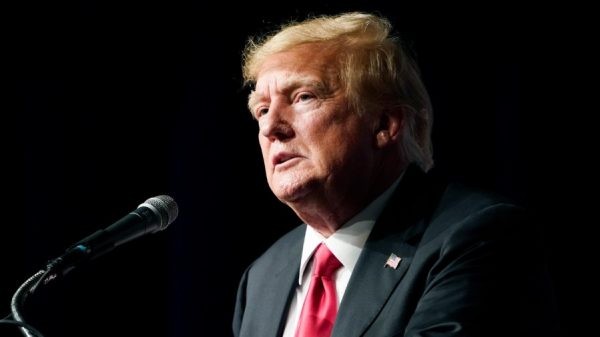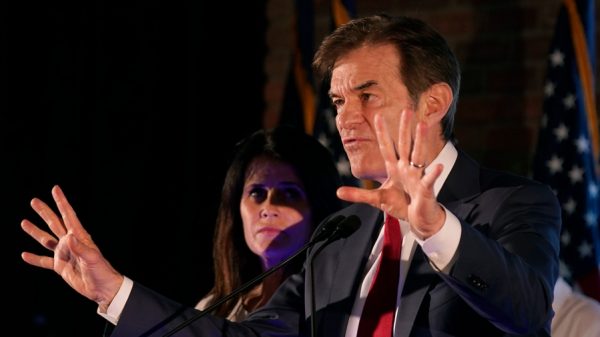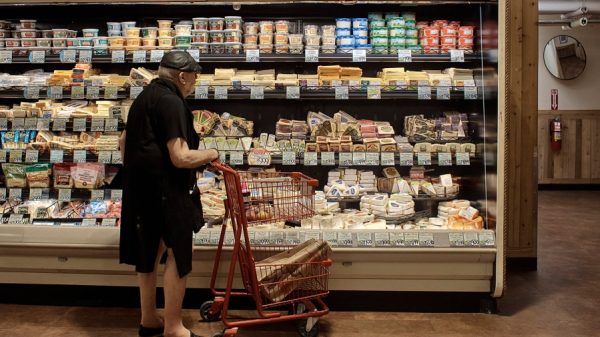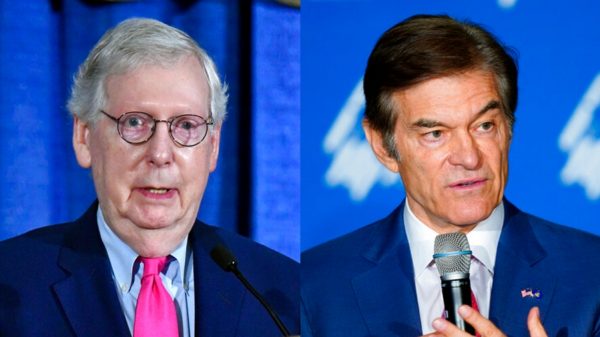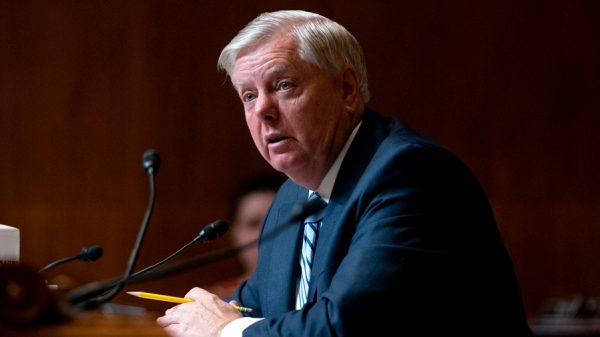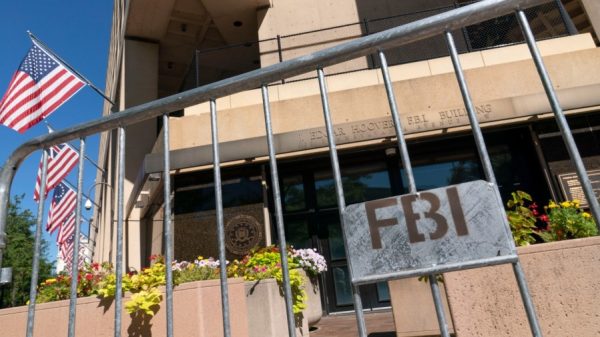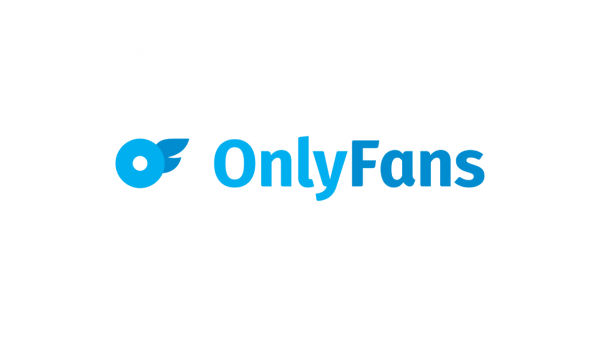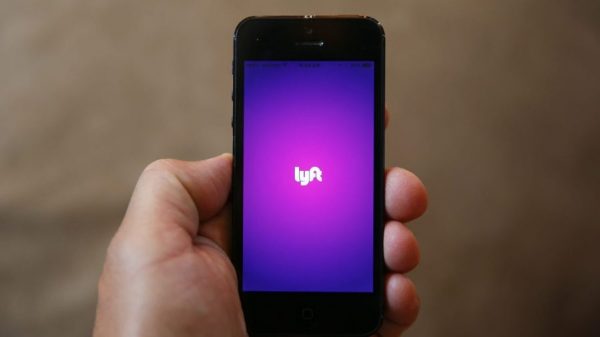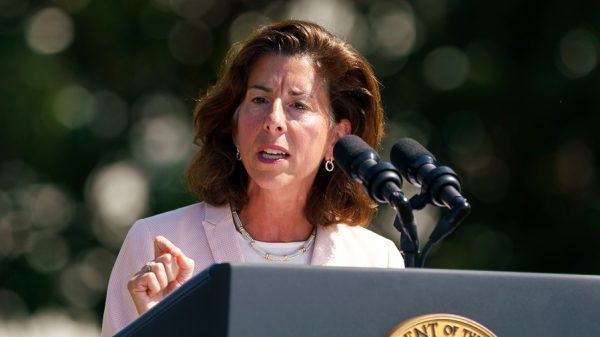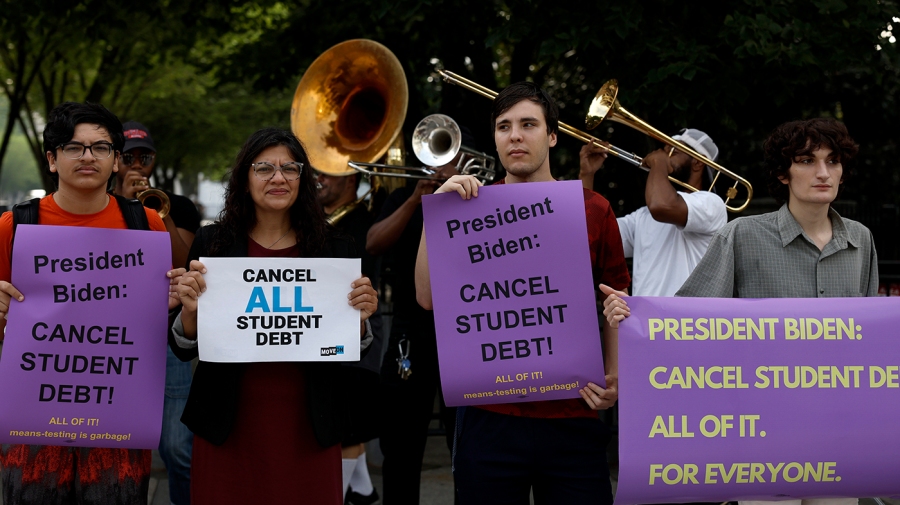The Biden administration is expected on Wednesday to announce it is canceling a chunk of student debt, even as it faces criticism that going too far could hamper efforts to fight off inflation.
Some progressive Democrats have argued that forgiving student debt could help their party and Biden in the midterm elections given the crushing debt facing millions of students. Yet there is also reason to think the plan carries some real political risk.
Recent polling shows a majority of Americans are worried about the impact debt forgiveness plans could have on inflation, a huge issue in the midterms.
Under the potential forgiveness plan, borrowers earning less than $125,000 per year could see at least $10,000 in cancellation of their federal student loans. The amount is much lower than many progressives aimed for but would mark the most significant forgiveness in federal student debt for borrowers ever.
The idea has drawn pushback from Republicans, who have strongly come out against Democratic-led proposals for student debt relief in recent months, denouncing them as unfair and inflationary.
“The federal government does not ‘forgive’ or ‘cancel; student loans — they take the debt and give it to every American, including those without a degree. It’s just wrong,” Sen. Mike Braun (R-Ind.) tweeted on Tuesday.
An analysis released by the Penn Wharton Budget Model (PWBM) on Tuesday estimated the plan could run up about $300 billion in costs, with the potential to reach $330 billion if the effort is continued through the next decade for new borrowers and others who could qualify.
Kent Smetters, faculty director for PWBM, said the cost increase to continue the program for subsequent years would be much smaller in magnitude “because the assumption is that this is a one-time forgiveness per borrower.”
As for the impact the plan would have on inflation, Smetters estimated it to be more marginal in size, saying it would “basically barely show up in some sense in the standard inflation metric.” Though he added the plan could have future implications for inflation in higher education costs and “change how people finance college.”
“That could also change how colleges themselves price things,” Smetters said, asking, “Will colleges themselves actually increase tuition and capture a lot of the benefit?”
Last month, annual consumer inflation hit 8.5 percent, easing from a four-decade high of 9.1 percent the prior month, though still much higher than what economists say is normal.
Republicans have pinned much of the blame on Democrats, specifically citing stimulus spending passed under the Biden administration as helping fuel inflation, as well as pandemic relief programs like the ongoing student loan pause.
Although experts have said government spending under both the Trump and Biden administrations has had an impact on inflation, they also downplay the effects of the years-long payment freeze on the recent spike in costs.
But the Biden administration is still facing pressure to end the relief as government spending attracts more attention amid rising inflation.
While Marc Goldwein, senior vice president of the Committee for a Responsible Federal Budget, said the effects of extending a current pause on payments is “not gigantic,” he also said it’s one of the “most direct and instantaneous tools that the administration has” to combat inflation.
“It’s not large relative to the size of the inflation problem. But it’s large relative to the president’s tools to fight inflation,” Goldwein told The Hill last week.
However, advocates and Democrats pushing for forgiveness say rising prices underscore the need for continued relief to borrowers, citing economic hardship faced by lower income borrowers as inflation remains high.
“Inflation is most definitely a problem I think that we should be talking about, and it impacts student loan borrowers tremendously,” said Persis Yu, policy director for the Student Borrower Protection Center. “Especially low income student loan borrowers, who would really benefit from cancellation because they’re the folks who are spending more of their income right now on milk and bread.”
Advocates have also pushed back on plans by the White House to apply income restrictions to who is eligible for student loan forgiveness. But there are questions about whether the current income caps set at $125,000 are too high.
The recent PWBM analysis estimated about 70 percent of the debt forgiven under the proposed $10,000 plan “accrues to households in the top 60 percent of the income distribution.”
Smetters said roughly 30 percent “would go to the bottom 40 percent of the income distribution.” However, he also noted the analysis doesn’t account for racial demographics of borrowers, which advocates say is important to factor in.
Proponents of student loan relief often promote the effort as a means to promote racial equity, while noting the disproportionate burden faced by borrowers of color, especially Black borrowers, who experts say are more likely to borrow at higher rates and struggle with repayment.
“We often conflate income with wealth in that we’re not always capturing everybody who really needs assistance when we do means testing, in particular with income caps,” Yu said.
Yu particularly pointed to the yawning wealth gap between white and Black households, saying Black borrowers need higher incomes “to be able to afford homes, and to build savings, and retirement.”
—Updated at 1:47 p.m.

